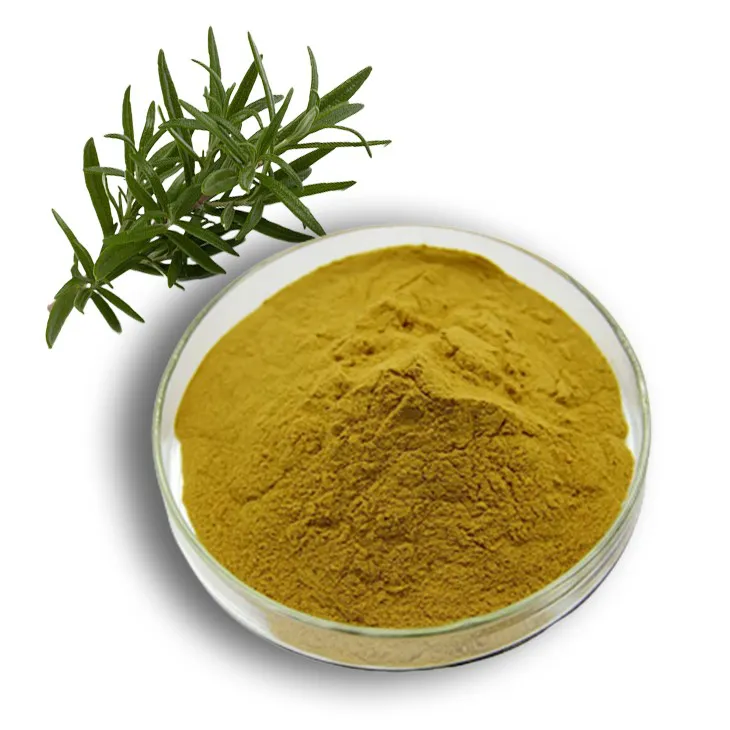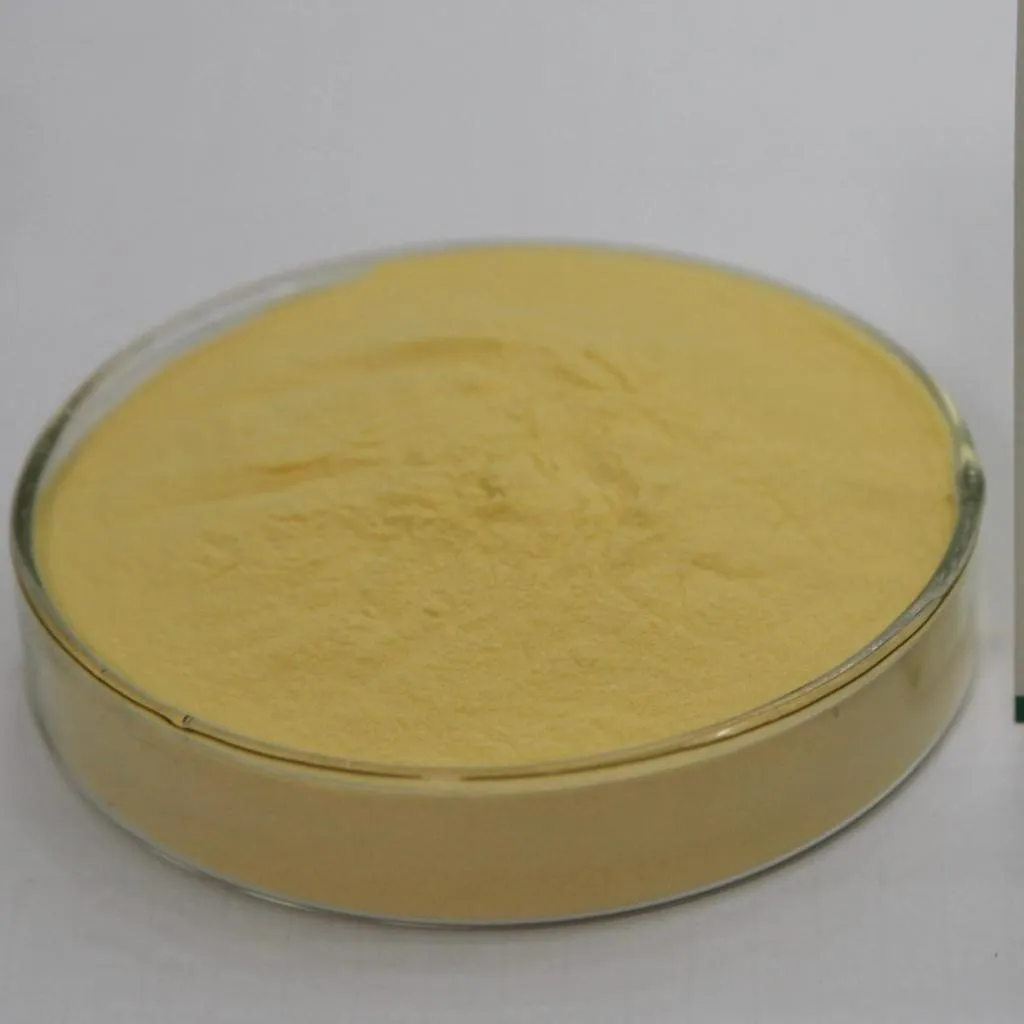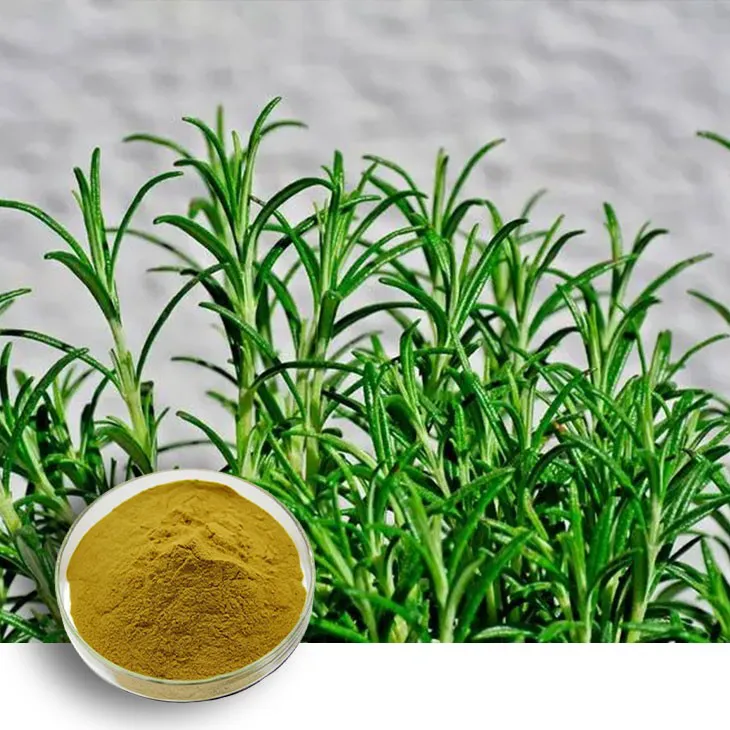- 0086-571-85302990
- sales@greenskybio.com
Rosemary Extract: Benefits and Consumption Guide
2024-11-13

1. Introduction to Rosemary extract
Rosemary (Rosmarinus officinalis) is a fragrant herb that has been used for centuries in cooking, traditional medicine, and even in religious ceremonies. Rosemary extract is derived from this herb and has gained significant attention in recent years due to its potential health benefits.

2. The Nutritional Profile of Rosemary extract
Rosemary extract contains a variety of bioactive compounds. One of the most important is rosmarinic acid, which is known for its antioxidant and anti - inflammatory properties. Additionally, it contains carnosic acid and carnosol, which also contribute to its health - promoting effects.

3. Health Benefits of Rosemary Extract
3.1 Antioxidant Activity
Free radicals are unstable molecules that can cause damage to cells and DNA in the body. This damage is associated with the development of chronic diseases such as cancer, heart disease, and neurodegenerative disorders. Rosemary extract is rich in antioxidants, which help to neutralize free radicals and prevent this damage. The antioxidants in rosemary extract can scavenge free radicals in the body, reducing oxidative stress and potentially lowering the risk of developing these chronic diseases.
3.2 Anti - Inflammatory Properties
Inflammation is a natural response of the body to injury or infection. However, chronic inflammation can be harmful and is linked to many health problems. Rosemary extract has been shown to have anti - inflammatory effects. It can inhibit the production of inflammatory mediators such as cytokines and prostaglandins. This makes it potentially beneficial for conditions such as arthritis, where inflammation in the joints causes pain and reduced mobility.
3.3 Cognitive Health
There is some evidence to suggest that rosemary extract may have a positive impact on cognitive health. It may improve memory and concentration. Some studies have shown that the antioxidants in rosemary extract can protect the brain from oxidative stress, which is associated with age - related cognitive decline. Additionally, the anti - inflammatory properties of rosemary extract may also play a role in maintaining brain health.
3.4 Digestive Health
Rosemary extract may also be beneficial for digestive health. It has been shown to have antimicrobial properties, which can help to fight off harmful bacteria in the gut. This can improve the balance of the gut microbiota, which is important for overall digestive function. Additionally, the anti - inflammatory properties of rosemary extract may also be beneficial for conditions such as inflammatory bowel disease.
3.5 Heart Health
The antioxidant and anti - inflammatory properties of rosemary extract may also contribute to heart health. It can help to reduce oxidative stress in the blood vessels, which is a risk factor for heart disease. Additionally, it may help to lower blood pressure and cholesterol levels, although more research is needed in these areas.

4. Consumption of Rosemary Extract
4.1 In Food
Rosemary extract can be added to a variety of foods. It is commonly used in cooking to add flavor to meats, vegetables, and soups. When added to food, it not only enhances the taste but also provides the health benefits associated with the extract. For example, adding a small amount of rosemary extract to a marinade for chicken can add a delicious flavor while also potentially providing antioxidant and anti - inflammatory benefits.
- Seasoning for Meats: Rosemary extract can be used as a natural seasoning for beef, pork, and lamb. It can be mixed with other herbs and spices to create a unique flavor profile.
- Vegetable Enhancements: When added to roasted or sautéed vegetables such as broccoli, carrots, or zucchini, rosemary extract can enhance the flavor and add a touch of elegance to the dish.
- Soup and Stew Additions: A few drops of rosemary extract can transform the flavor of a simple soup or stew, making it more complex and enjoyable.
4.2 Dietary Supplements
Rosemary extract is also available in the form of dietary supplements. These supplements come in various forms such as capsules, tablets, and liquid extracts. When taking rosemary extract as a supplement, it is important to follow the recommended dosage.
- Capsules: Capsule - based supplements are convenient and easy to take. They typically contain a standardized amount of rosemary extract. Follow the instructions on the label for the correct dosage.
- Tablets: Similar to capsules, tablets also provide a measured amount of the extract. However, some people may find tablets easier to swallow than capsules.
- Liquid Extracts: Liquid rosemary extract can be added to water or juice and consumed. It is important to measure the correct amount as the concentration may vary between products.

5. Dosage Considerations
The appropriate dosage of rosemary extract can vary depending on several factors, including age, health status, and the form of the extract. In general, when using rosemary extract as a food additive, a small amount such as a few drops or a pinch is usually sufficient to add flavor and provide some health benefits.
When taking rosemary extract as a dietary supplement, it is important to follow the manufacturer's recommendations. However, a common dosage range for adults is typically between 400 - 600 mg per day. It is important not to exceed the recommended dosage as high doses may lead to potential side effects.
6. Potential Side Effects
While rosemary extract is generally considered safe for most people, there are some potential side effects to be aware of. In some cases, it may cause allergic reactions, especially in people who are allergic to rosemary or other related herbs.
High doses of rosemary extract may also cause digestive problems such as nausea, vomiting, or diarrhea. Additionally, it may interact with certain medications, so it is important to consult a healthcare provider if you are taking any medications, especially blood - thinning medications or medications for diabetes.
7. Conclusion
Rosemary extract offers a wide range of potential health benefits, from antioxidant and anti - inflammatory effects to possible benefits for cognitive, digestive, and heart health. It can be easily incorporated into the diet through food or dietary supplements. However, it is important to be aware of proper dosage and potential side effects to ensure safe and effective use.
FAQ:
What are the main antioxidants in rosemary extract?
Rosemary extract contains various antioxidants, with carnosic acid and rosmarinic acid being among the main ones. These antioxidants play a crucial role in combating free radicals in the body.
How does rosemary extract show its anti - inflammatory properties?
It can modulate the body's inflammatory response pathways. By inhibiting certain enzymes and signaling molecules involved in inflammation, rosemary extract helps to reduce inflammation at a cellular level. This can be beneficial for conditions like arthritis and other inflammatory - related health issues.
Can rosemary extract be used in cooking?
Yes, it can be used in cooking. It can add flavor to a variety of dishes, such as meats, soups, and stews. When added to food, it not only enhances the taste but also brings the potential health benefits associated with its antioxidant and anti - inflammatory properties.
What are the potential side effects of consuming rosemary extract?
Some people may experience allergic reactions, although this is relatively rare. In large doses, it may cause digestive issues such as stomach upset or diarrhea. It's important to follow the recommended dosage when consuming rosemary extract, especially in the form of dietary supplements.
How much rosemary extract should one consume daily?
The appropriate dosage can vary depending on factors such as age, health condition, and the form of the extract (e.g., food - based or supplement). Generally, for dietary supplements, it is advisable to follow the instructions on the product label. In food, it is consumed in smaller amounts as part of normal seasoning, and there is no strict upper limit for normal culinary use.
Related literature
- Antioxidant and Anti - inflammatory Properties of Rosemary (Rosmarinus officinalis L.)"
- "The Health Benefits of Rosemary Extract: A Review"
- "Rosemary Extract in Food and Dietary Supplements: An Overview"
- ▶ Hesperidin
- ▶ citrus bioflavonoids
- ▶ plant extract
- ▶ lycopene
- ▶ Diosmin
- ▶ Grape seed extract
- ▶ Sea buckthorn Juice Powder
- ▶ Beetroot powder
- ▶ Hops Extract
- ▶ Artichoke Extract
- ▶ Reishi mushroom extract
- ▶ Astaxanthin
- ▶ Green Tea Extract
- ▶ Curcumin Extract
- ▶ Horse Chestnut Extract
- ▶ Other Problems
- ▶ Boswellia Serrata Extract
- ▶ Resveratrol Extract
- ▶ Marigold Extract
- ▶ Grape Leaf Extract
- ▶ blog3
-
High purity olive leaf extract
2024-11-13
-
Lavender oil extraction method
2024-11-13
-
100% organic virgin sea buckthorn fruit oil
2024-11-13
-
Lotus leaf extract powder factory in China
2024-11-13
-
China aged garlic extract supplier
2024-11-13
-
Deer antler extract powder manufacturer
2024-11-13
-
Saw palmetto extract vs whole herb
2024-11-13
-
Uridine-5'-monophosphate Disodium salt
2024-11-13
-
Maca Extract
2024-11-13
-
Hops Extract
2024-11-13
-
Avocado Extract Powder
2024-11-13
-
Hericium erinaceus extract powder
2024-11-13
-
Konjac Powder
2024-11-13
-
Centella Asiatica Extract
2024-11-13
-
Angelica sinensis extract
2024-11-13
-
Fig Extract
2024-11-13
-
Saw Palmetto Extract
2024-11-13





















